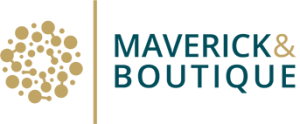On April 30th, author and New York Times columnist David Brooks wrote about “weavers” and “rippers”: those who actively seek to find the ties that bind us together through good and bad times, and those who look for—and enlarge—divisions that separate us from each other and our common humanity. He cites multiple polls that show Americans from both ends of the political spectrum united in the desire to do whatever it takes to deal with the current crisis. He talks about acts of selflessness and heroism that bring tears as I type.
Brooks also points out that we Americans are more united now than we have been in the almost twenty years since 9/11. I remember back then former-NY Governor, Mario Cuomo, asking what it would take for us to be selfless, kind, and united on a regular day, not just in a life-threatening emergency; and Brooks asks that question now.
It’s a good one, and one each of us can ask as we live and work together in times that push boundaries and challenge norms. Not just because we live in the midst of COVID 19, but because we and our world are changing in formerly unimaginable ways, right before our eyes, socially, technologically, and ecologically.
“Everywhere I hear the same refrain:” writes Brooks, “We’re standing at a portal to the future: we’re not going back to how it used to be.”
But where are we going; and how are we going to get there? United as weavers, or divided as rippers? What is a future we all can get behind, and how might we all participate in actively creating that future, beginning now?
Here are some questions to share with your colleagues, partners, family, and friends to support you in thinking about creating the future now:
- What are the changes happening in the world (social, economic, technological, environmental) that are having a big effect on the way you live and work? Think about multiple generations in the workplace, gender preferences, virtual workplaces, social and political perspectives, climate change, etc.
- What effects are these changes having on you and the people around you and how is everyone responding: are you “weaving” or “ripping”, or a combination of both?
- What does a future look like that everyone in your organization or community would be excited about creating?
- What if you knew it could happen? What specific actions could you take now to find commonality and take action?
- What would be the positive impact on you and your organization when you have accomplished this?
- What will you commit to doing now, and with whom?


